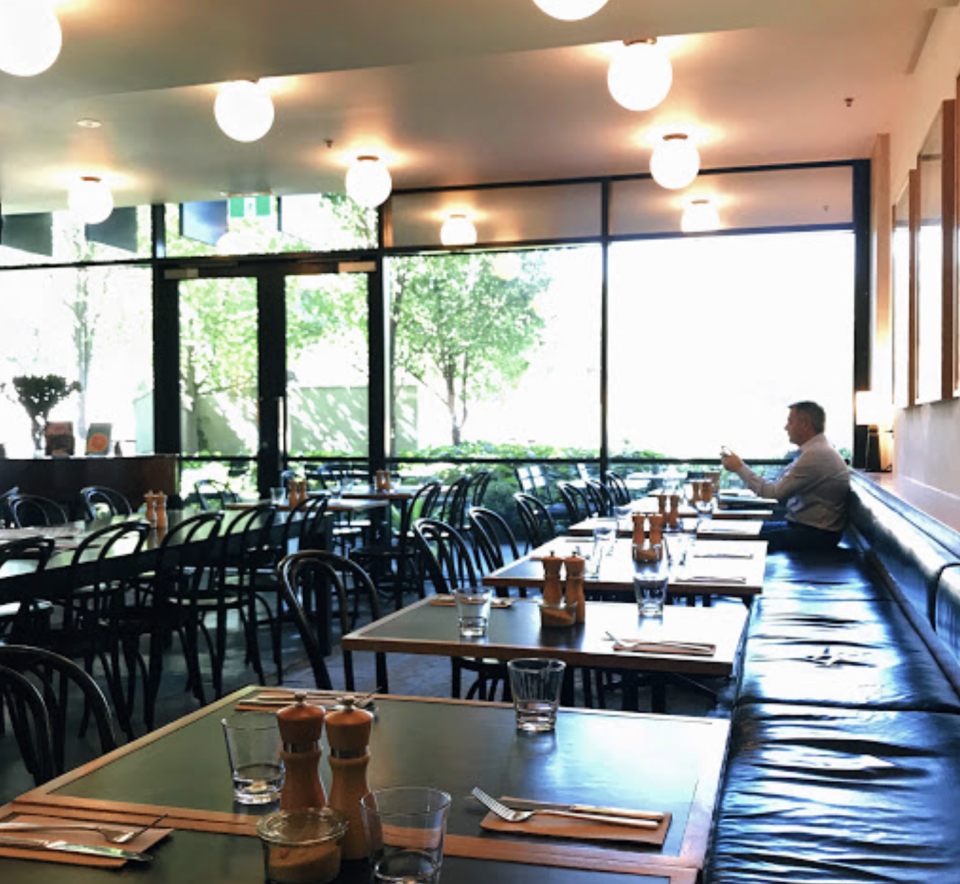Customers who fail to show for reservations blasted for 'selfishness'
Customers who fail to front up for reservations without calling to cancel their booking have been called out for their selfish and inconsiderate behaviour.
Patrons are causing an already struggling restaurant industry to be crippled, with the added strain of strict capacity limits placing immense financial pressure on small business owners.
When bad weather struck Canberra earlier this month, restaurant Muse had 11 people not show up for their reservations, which made up for a quarter of its capacity under coronavirus rules.
A spokesperson for the restaurant said staff had to turn people away because they were expecting others to show for their booking.

“People not showing up is not new. People not showing up without telling us when we can only have a certain number of people in at any one time is frustrating,” a post to Twitter read.
Muse’s experience is sadly not unique, with many other business across Australia and the world facing the same problem.
UK chef Tom Kerridge hit out at dozens of patrons who opted not to front up for their bookings at his five star restaurant Kerridge’s Bar & Grill in London last month.
Anne Nalder, the CEO and founder of Small Business Association, said the public needed to dial up its empathy for restaurant owners, who were still having to pay for all their personal living expenses on top of costs related to their business.
“You can’t operate a restaurant and run a profit with just a few customers inside of it. So if somebody takes out those customers on top of that, it makes it very vey hard,” Ms Nalder told Yahoo News Australia.
I know the weather is gross but please call a restaurant if you’re not going to make your reservation. So far we’ve had 11 people not turn up for their bookings today which, under current restrictions, is 1/4 of our capacity. We’ve been turning people away and you no come. 😭
— Muse (@CanberraMuse) August 8, 2020
“Most small business owners have also got their homes mortgaged to banks for loans, so you’ve got a whole range of people that can be affected. If a small business goes out of business, it could also affect another small business because it might owe money to them for supplies,” she said.
“It’s like a supply chain domino affect all in one.”
Australians needed to shift their attitudes and consider themselves as part of a bigger picture or prepare for the closure of thousands of small businesses, Ms Nalder said.
“It’s more than just bad manners. At a time like now when businesses are struggling and there’s restrictions on the number of patrons that can attend at a time, I think it is imperative people exercise responsibility.”
What can businesses do to prevent ‘no shows’
In the face of mounting financial pressure and minimal signs of the pandemic easing, Ms Nalder said there were a handful of measures businesses could consider introducing.
Ask for a deposit
She encouraged businesses who weren’t already asking for patrons to put down a deposit to secure their booking to start doing so.
“If customers can’t make it, they need to phone up and cancel. Otherwise I would be insisting on businesses taking a deposit, because at least if that’s the case they will make the effort to turn up,” she said.
It may be beneficial to refuse guaranteeing a customer a booking if they won’t put a deposit down, so as to keep the spot free for someone else who is willing to pay to secure a table.
Ensure COVID-19 requirements are in check
Ms Nalder said it was important restaurant staff were receiving regular training and remained updated on the ever-changing coronavirus requirements.
Not complying with social distancing, capacity limits or hygiene requirements could see businesses run into serious legal ramifications, potentially reducing the likelihood of its survival.
“They also need to provide exceptional service, which means staff training as well. This is especially important at a time like now,” she said.

Don’t discount prices
While it might seem enticing to lower prices in an effort to encourage customers through their doors, Ms Nalder encouraged businesses to refrain from doing so.
“I think that sort of thing devalues the quality of the business and what you’re offering. I personally would never recommend discounting, regardless of coronavirus,” she said.
“The more you discount, the more you cut your profit margins. Profit margins are not about being greedy, it’s about reality.
“If the business doesn’t make any money, it will go out of business. That means the staff may or may not get paid and they lose their jobs.”
Keep standards high
Despite turmoil unfolding due to the coronavirus pandemic, Ms Nalder said it was no time for businesses to drop the ball on delivering exceptional service.
“I think businesses need to look at customer service and keep their standards up. If they do that, hopefully the restrictions will ease sooner than later and they can go back to doing what they do best,” she said.
“The community needs to be less selfish, more considerate, and doing the right thing when we’re having a night out. If you can’t make it, let them know.”
Do you have a story tip? Email: newsroomau@yahoonews.com.
You can also follow us on Facebook, Instagram and Twitter and download the Yahoo News app from the App Store or Google Play.




